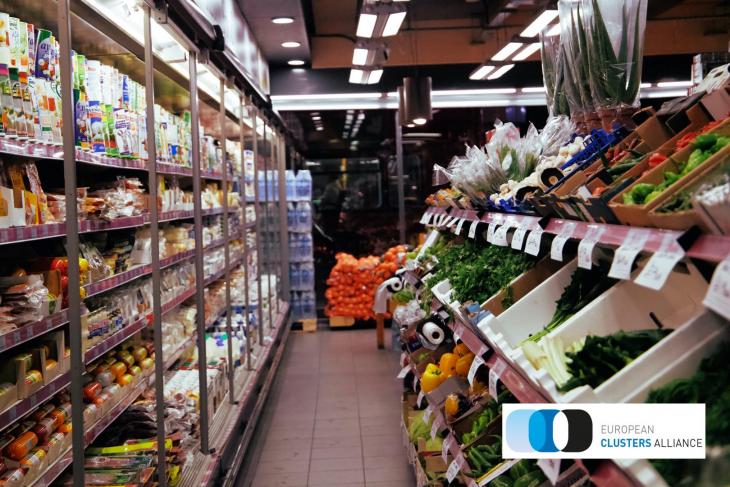Short value chains in Agri-food
Summary of the European Alliance Against Coronavirus Daily Webinar on 16 July 2020.
In this morning session, ECA is back to talk about the agri-food ecosystem with the contributions of Blaga Popova, DG GROW, Felix Arion, AgroTransilvania Cluster, and Lorenzo Morelli, Cremona FoodLab.
Blaga Popova provided an overview of the actions carried out by the European Commission specifically related to the agri-food ecosystem. The recent pandemic has generated many disruptions in the agri-food ecosystem as well as linked ecosystems like in tourism and the HoReCa sector. One of the EU priorities is now to foster the sustainability of the ecosystem and to support its green transition along with the recovery. The Farm to Fork Strategy is a major roadmap for the actors. Clusters can help to involve SMEs and farmers to exchange information and co-create the implementation of the new policies. Another important aspect is that the European Commission is working on raising consumer awareness by supporting the consumption of healthy and sustainable food.
Felix Arion from AgroTransilvania Cluster Romania explained the mission of the cluster and illustrated its value chains. He started from the analysis of Romanian agriculture, which plays an important role in the productive landscape of the region. The evidence shows that changes in customer behavior during the peak of the crisis are not lasting: consumers not to exploit the short value chains of local producers but prefer large retailers. During the pandemic, producers increased direct selling through e-commerce and customers ignored the conventional value chain; however, after the peak, consumers return to their regular habits. Now it is time to find out how to reduce the extension of the value chain and what kind of support is possible to give in order to improve it.
Lorenzo Morelli from Cremona Foodlab, entity funded by Fondazione Cariplo, Lombardy Region, Chamber of Commerce of Cremona and Municipality of Cremona, turned the view to the consumers’ psychological behavior. During the crisis, Cremona Foodlab has developed a survey linked to the general concern of population in relating the virus and food. The overview is worrying: 24% of Italians feel at risk of infecting themselves with COVID-19 due to possible contamination of food products, and 32% do not have a clear idea on the topic and would like reassurances. To combat fake news, webinars have been created to foster the dissemination of reliable information.
A recording of the session is available here
These are the complete minutes of the meeting:
20200716 ECA dailyminutes_v2.pdfThis is the presentation from the meeting:
Cremona FoodLab_July 16.pdfFind information on the previous meetings here; information on the upcoming agenda here.
Photo by Mehrad Vosoughi on Unsplash
